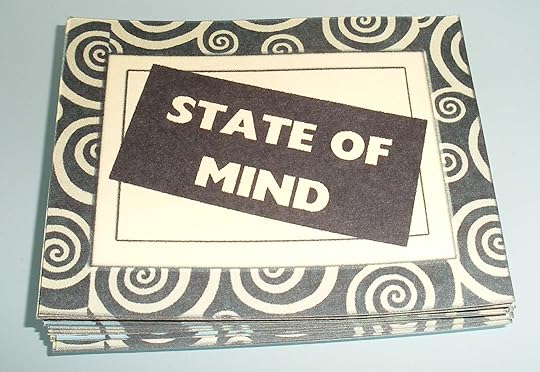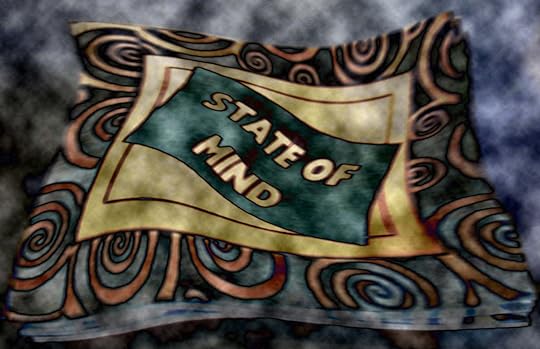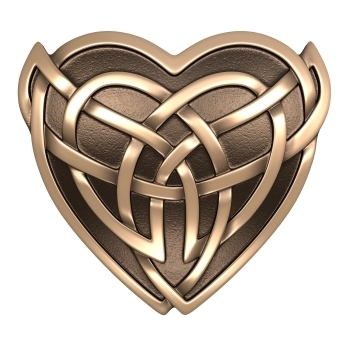Resources for Writing Factually About Adoption
 Whether you are a fiction writer who is representing an adopted child or the relinquishing mother; or if you are an adoptee or birth parent writing your life story, these resources will help you. However, be warned that some of the information I am sharing may bring up painful issues.
Whether you are a fiction writer who is representing an adopted child or the relinquishing mother; or if you are an adoptee or birth parent writing your life story, these resources will help you. However, be warned that some of the information I am sharing may bring up painful issues.
I am an adopted person. I was bought up knowing from an early age that my mother was too young and unsupported to care for me. Adoption was a good thing and one day, I could find my mother. I have also always been aware that being adopted means I carry some permanent wounds related to being terrified of loss and rejection, and not really knowing who I was.
My adopted family was emotionally abusive. I was bought up with my mother’s martyr complex about how awesome she was to take on someone else’s child. I have been repeatedly told that I “owed them.” I felt like a possession. That is only a small sampling of the damage done to me by my adopted family with their own psychiatric issues. When I reached my late twenties, I finally gave up trying to play happy families, changed my name to one I chose, and started a new life away from them all.
It was easier to do than I thought. The connection to them never really was there. My mother and I had so little in common, we didn’t even wash plates the same way. I had only ever bonded with my dad. When I got my DNA test done, it turns out we both have some matching ancestry. He is the only biological match I had in that entire family.

Clear state of mind.
As my family is so dysfunctional, when I did search for my birth mother in the mid 1990s, I never told them. It is just as well. I received an almost hysterical phone call from a complete stranger in deep grief, begging me never to contact her again. I have given her sixteen years to change her mind. It looks like she won’t. Knowing from my adoption records what she went through, I forgave her readily at the time. It wasn’t until I hit the statistic that 96% of birth mothers want a reunion that I went to pieces. Why was I in the 4% that was rejected? I could have helped her. Why didn’t she have the guts to try and heal? She could have been at my wedding. I could have been at her 60th birthday last year.
This is not an easy issue. Parents are given adopted babies not knowing how damaged they are. It is presumed that babies are emotionally undeveloped, thus they’ll adapt and are OK. Any child who has bonded to their mother is torn apart by the loss. If like me, they were in a humidicrib for months, or it took time for adoption to go through, the lack of early bonding and affection is a life-long scar. It does not heal. You cannot compensate completely for that early loss. If you grieve any loved one that died, how is this different? Age does not matter.

Toxic state of mind.
Studies have shown that adopted children suffer clinical depression, bonding issues, relationship problems, identity disorders, eating disorders, drug and alcohol abuse, attention deficit disorder, infertility, suicide, unwanted pregnancies, homelessness, criminal lifestyles, and will push connection with other people away for safety. Why so much damage from an early bad start? Replacement love is just not enough. Counselling from an early age is not given. No fairy story of “your mother loved you” is entirely believable… especially if you happen to be in the 4% who are rejected a second time.
If you do find your parent, you are confronted with a stranger, their family, their lifestyle, their mistakes and wounds. It does not always have fairy tale ending. Often, it goes very wrong or contact is minimal to keep the pain under control. The hope that all the pieces will suddenly fit together is a myth. A child growing up in a their world, may find it a challenge to accept that their biological mother is also in her own world. They can be very different and conflicting. In some ways I am grateful I never met my mother. What if she is an alcoholic and I am part of the cause? How would I deal with that? Would she take her hurt out on me, regardless of the fact that I did not cause it? That Australia Day long weekend was her choice. It doesn’t reflect on me, but it’s easier to have a scapegoat.
Adoption is no small issue for the biological mothers who were often forced to give their children up either. They have a clinically unique grief which also never heals, and can be made worse by contact with their removed child. It does not necessarily get better with time. 30-40% choose to have no further children. The infertility rate in relinquishing mothers is 170% above the norm. They too experience as many psychological illnesses as their children are prone to; deal with difficulties in parenting subsequent children, have failed marriages and suffer from the shame and secrecy that surrounds having had a child before marriage. In short, it is perpetual punishment. (Source Statistics on the Effects of Adoption http://www.adoptionhealing.com/ginni.html)
My mother was a foster child. She passed on the cycle of pain and alienation. Please pray for “Lynette.”
__________________________________
More information on adoption is available here:
[image error]
Adoption.com is the authority for all things adoption. Check out our resources about pregnancy, domestic & international adoption, parenting, adoptees, fostering etc.
ARMS – Association of Relinquishing Mothers, particularly, read this page http://www.armsvic.org.au/about-relinquishment www.armsvic.org.au
Impact of Adoption on Adopted Persons: Child Welfare Information Gateway (US)
https://www.childwelfare.gov/pubs/f_adimpact.cfm and
Understanding child development and the impact of adoption: www.childwelfare.gov/pubs/factsheets/parent_school_age/parent_school_age_a.cfm
Life Issues for Adult Adoptees from adoption.com
http://www.adoption.com/articles/life-issues-for-adult-adoptees.html
How babies respond to adoption: yes, they do grieve and feel separation and react – adoptionvoicesmagazine.com
http://adoptionvoicesmagazine.com/adoptee-view/adoptee-view-what-can-a-tiny-baby-know/#.Uey4MxYyH8s
Nancy Verrier’s website, home of the book, the Primal Wound http://nancyverrier.com/the-primal-wound/
www.adoptioncircles.net
www.birthpsychology.com – critical site for information, scientifically based.
www.bastards.org – adoptee rights organisation.
Links to a wealth of other information such as search and support services, libraries for research etc from Canada’s Forget Me Not Family Society http://www.adoptioncircles.net/cms3/weblink_directory
Mental Health Of The Adopted Child – Origins Inc
www.originsnsw.com/mentalhealth/id4.html
__________________________________
FINDING YOUR FAMILY
 Oz-Reunion, commercial online search site
http://www.ozreunion.com.au/
Oz-Reunion, commercial online search site
http://www.ozreunion.com.au/
General Register Office in England
http://www.direct.gov.uk
General Register Office in Scotland
http://www.gro-scotland.gov.uk
General Register Office in Ireland (Eire)
http://www.groireland.ie
General Register Office in Northern Ireland
http://www.groni.gov.uk
Adoption Jigsaw was founded in Perth, Western Australia in 1978, and provides search, mediation and counselling services to anyone involved in adoption.

This article / blog post is Copyright Cate Russell-Cole 2013. All rights are reserved Internationally. You may not reproduce it in any form, in part of whole, without Cate’s prior written permission. That includes usage in forms such as print, audio and digital imaging including pdf, jpg, png etc. A fee may be requested for re-using her work if it is for a commercial venture. Link sharing and Pinterest pins are most welcome as long as Cate is the attributed Author.
No images on this blog may be copied, captured, or altered for your own purpose without the consent of the originating owner.
Filed under: Life Story / Memoir, Writing Resources Tagged: adoptee, adoption, adoption resources, biological mother, birth parent, characterisation, conflict, fiction, finding your family, grief, ideas, inspiration, life story, loss, memoir, mental health, motivation, plot, psychology, rejection, relinquishing mother, resource, stress management, writing, Writing Rocket Fuel










